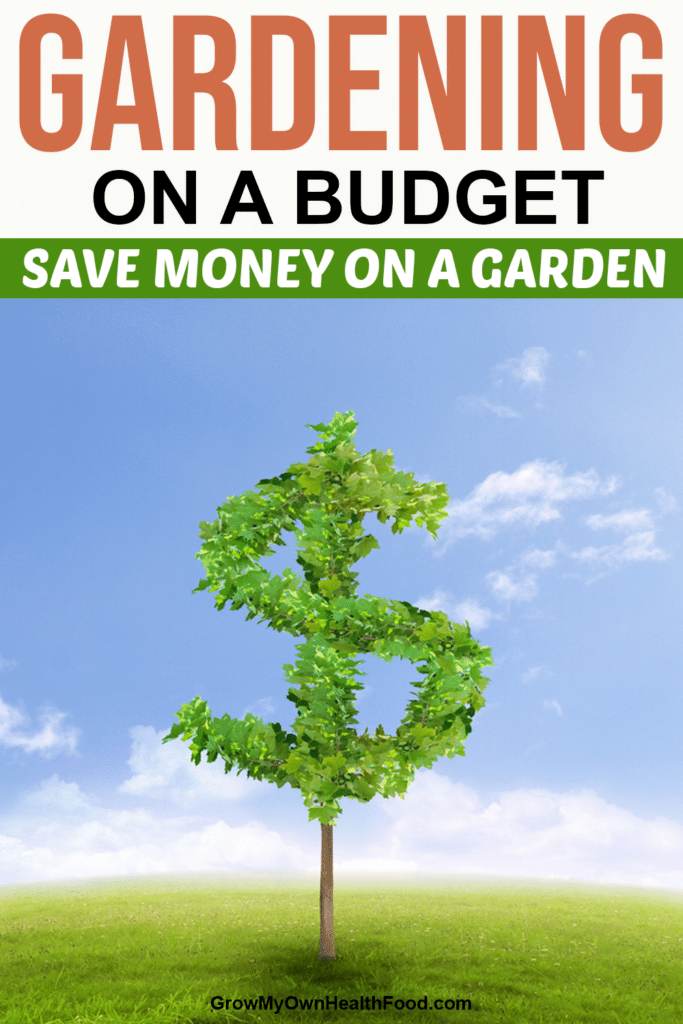No time of the year is late to start a budget. However, when it comes to your garden, there is no better time than now to start thinking about gardening on a budget. If not for anything, the gardening season is still a few weeks away, and this gives you enough time to get your garden financial planning right.
Although gardening can be an expensive enterprise, nevertheless there are many ways to watch the budget. Some of them can be as simple as buying smaller plants, while some techniques like DIY compost will require more effort. The good news is, with some careful planning and research, you’ll be able to save money on your gardening budget. That said, here are some tips that will help you save money on your garden.
Use smaller plants
- ADORN YOUR SPACE - Elegant, minimalist white ceramic plant pots that match any style of decor. Showcase your beautiful greenery and give yourself (and others) something attractive to look at.
- SIMPLISTIC BEAUTY - Stylish and versatile, they can match any aesthetic (modern, farmhouse etc) and can be used anywhere - office, bedroom, living room, bathroom. These beautiful pots will earn you compliments for years to come!
- UNIQUE DESIGN - Unlike cheaper alternatives, each ceramic planter is molded by hand and designed with slightly larger holes for better drainage, a ridge on the base for better stability, and a planter tray with a raised rim to catch and absorb water
- LARGER SIZE - A 4 inch planter can hold a larger variety of plants, flowers, and cacti with room to spare for growth compared to most small pots for succulents
- SUPERIOR QUALITY - Small plant pots hand-molded using high-quality ceramic that is beautifully and evenly glazed and more durable than other materials with soft and smooth bamboo plant trays
Prices pulled from the Amazon Product Advertising API on:
Product prices and availability are accurate as of the date/time indicated and are subject to change. Any price and availability information displayed on [relevant Amazon Site(s), as applicable] at the time of purchase will apply to the purchase of this product.
This is a good start for gardening on a budget if you can wait out the time. You’ll spend less money when you buy smaller plants. For example, you can purchase a 4-inch pot instead of 1 gallon. Again, growing the plants will take more time for them to grow to mature size, but it’s a place to start if you’re really tight on money.
Collect your own seeds
Finding your own seeds can save you a lot of money from buying seeds. Save up seeds at the end of the season for use in the next planting season. Another method would be to start eating foods you want to plant. Don’t throw away the seeds. Dry them out on a paper plate and store them in a plastic zip bag.
DIY compost
- GROW A HAPPIER GARDEN – Do you look at other’s gardens with envy? Give your plants the nutrient-dense fertilizer they crave, and watch your garden bloom like never before! With Miracle-Gro’s dual chamber, heavy-duty tumbling composter you get 2 compartments for faster and more efficient composting all year round.
- KEEP THE NUTRIENTS COMING – Achieve your gardening goals with a steady supply of ready-to-use compost! This 2-chamber compost tumbler allows you to add compost ingredients to 1 side, while waiting for the other side to cure. And with internal mixing bars that speed up the decomposition process, you can expect rich, fertile compost in just 4-6 weeks!
- NO MORE HEAVY LIFTING – Miracle-Gro is here to make composting easy for beginners and seasoned green thumbs alike! Our efficient tumbler system is the simple way to get perfectly cooked compost without having to dig, turn, and mix by hand. All you have to do is open the easy-sliding door, add your scraps, and turn the handle 5-6 times every few days.
- A BRAND YOU TRUST – With the help of Miracle-Gro, both you and your garden will thrive. As America’s most trusted garden supply brand, we guarantee you’ll be satisfied with our products. Once you start using the compost generated by your new dual-chamber tumbling composter, you’ll enjoy bigger harvests, healthier plants, and your most beautiful gardens yet!
- Achieve your garden goals with a pair of Scotts multi-purpose gardening gloves! Each pair is latex-free, water-resistant, and features a no-slip grip, perfect for both indoor and outdoor projects. Grow your green thumb with Scotts and Miracle-Gro!
Prices pulled from the Amazon Product Advertising API on:
Product prices and availability are accurate as of the date/time indicated and are subject to change. Any price and availability information displayed on [relevant Amazon Site(s), as applicable] at the time of purchase will apply to the purchase of this product.
You can use a compost for your garden when they’re still in the early planting stages. Of course, this will take more time, but it will definitely save you some cost. It’s very pricey if you go to purchase it from the store. So, instead of purchasing it, why not build your own compost from what you already have? You can put one together using your kitchen scraps and garden waste. Things you can use include livestock manure and feathers, paper napkins, unused spices, vegetable scraps, used tea bags, paper towels, freezer burnt fish, etc. Be sure to let everything decompose very well, usually when there are no recognizable pieces left.
Start your own plants
- Keep and eye on your growth: The only design in the market- High quality clear plastic trays of this seed grow kit make it easy to observe your plants without interrupting the process.
- Total control: Adjustable vents of this seed trays allow you to regulate the temperature and humidity of your seedling environment, so you have total control over the growing process
- Perfect size for seed starting: Size of the cells: 1.5”in Length and 1.5”in Wide, these seed trays are suitable for small seeds, such as flowers, vegetables, fruits, tobacco and other plants.
- Grow health and efficient:With drain hole at bottom of each cell for proper drainage, reduce roots oversaturating. Reusable and a great way to foster a beautiful and healthy garden.
- What you get – MIXC seed starter tray contains: 10 x Seed Tray, 10 x Watertight Base Tray, 10 x Humidity Dome, 10 x Plant Labels (A must have for seedli
Prices pulled from the Amazon Product Advertising API on:
Product prices and availability are accurate as of the date/time indicated and are subject to change. Any price and availability information displayed on [relevant Amazon Site(s), as applicable] at the time of purchase will apply to the purchase of this product.
If you’re on a tight budget when planning towards your garden, you’ll find soon enough that growing plants from seeds will save you some money as against purchasing seedlings. There is an initial investment of planting mix, lights and trays, but you’ll recover them back, and save more in the long run. Some packets have more than 100 seeds, so you’ll have more plants. You can even trade some with your friends to get a wider variety. Clean trays with soap and water, and reuse them if plants grown in them don’t have any disease. This will save you more money. Even if there was sign of any disease, disinfect the trays with a solution of bleach and water after cleaning them. You can also germinate seeds in plastic cartons or egg cartons with openings at the bottom for water drainage.
Organize plant and seed swap
Set aside those plants you started from seeds, and hold a plant and seed swap with friends who have something to share as well. You’d surprised at the varieties of plants you’d get from such gathering.
Propagate your plants using cuttings
This is a method of obtaining a new plant by removing a part of a plant. Make sure the parent plant is healthy and without any diseases or insect pests. Once the new cutting is rooted, it will grow on its own. Another good thing about this technique is that it preserves some qualities that may get lost when you try to grow a new plant from seed, e.g. the color of hybrid flowers.
Shop sales
There are a lot of group sales going on prior to the planting season. Ask family and friends to see if they know of any ongoing sale. Check newspapers calendars as well. Generally search around for sales, as that’s where you’ll likely get less expensive garden items. Some garden centers even have a discounted plant section.
Look out for ‘free’ compost and mulch
Keep your eyes open for arborists and tree-cutting companies. They usually have big piles of mulch to give away. Also, you can save on delivery costs for bags of mulch or compost by teaming up with a neighbor.
How about recycled materials?
You can find a lot of gardening gear such as used bricks, pots, old tools, etc. at discounted prices on classified sections of newspapers, garage sales and thrift shops. More so, you can search for natural materials such as stones or stems for making bamboo poles for fences. There are people with a yard full of bamboos, and will be happy to have you take it off their hands.
Grow organic
It pays to stick with all-natural methods for your garden. At least, you don’t have to purchase all those chemical pesticides. What you do rather, is plant things that will attract beneficial insects to your garden. These insects will eat off the bad bugs and keep your plants healthy.
Gardening doesn’t have to be expensive. All you need is a little bit of creativity and research, and you’ll have a great garden without spending way more than you can.







